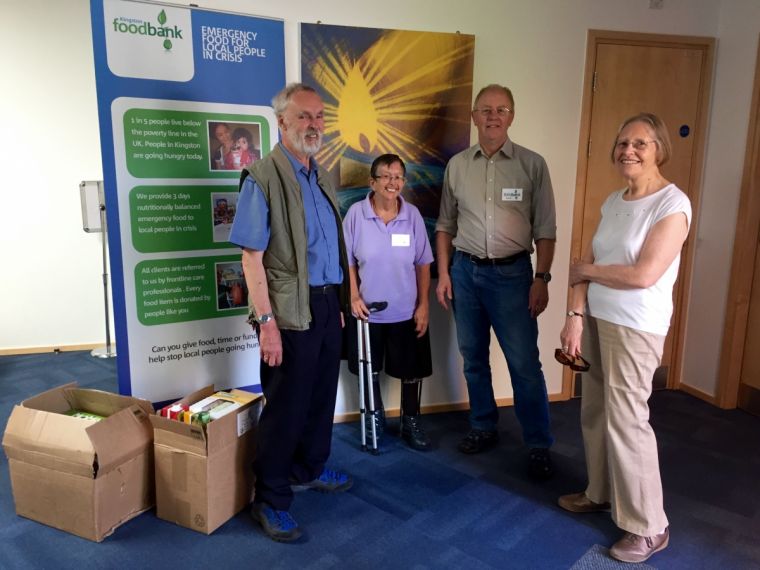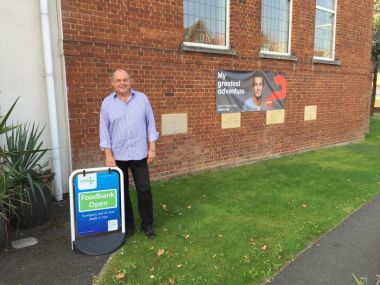Foodbank harvest appeal: 'Parents are going without food so their children don't starve.'

The Bible speaks a lot about poverty, helping the poor, seeing a need and meeting that need.
Foodbanks are increasingly offering a way to practise that teaching.
"What foodbanks have done is given the Church a way it can reach out with that message, the good news, in a very practical way," says Paul Pickhaver, director of Kingston Foodbank at New Malden Baptist Church, Surrey.
He was speaking as a new appeal is launched for food for more than 420 foodbanks across the UK, but also for cash to keep them up and running.
In its Combined Harvest appeal, the Trussell Trust Foodbank Network is calling for both types of donations for the first time.

This will help foodbanks make the challenging shift from autumn to winter, when they will see a significant rise in the need for help.
In the last year alone, more than 1.1 million three-day emergency food supplies were provided to local people in crisis by the foodbank. Of these, more than 400,000 went to children.
Pickhaver said: "The foodbank here in Kingston exists to provide food for local people who are in crisis, for whatever reason."
Reasons for needing help can be loss of a job, getting a job and coming of benefits but having to wait for wages to kick in, or even malnutrition, where people are not getting enough of the right kinds of food.
"Affordability and living costs in a place like Kingston is a real challenge."
He added: "The most important thing you can give to support a foodbank is food."
But this year, money is also needed, to help with running costs such as transport and insurance.
Kingston has in addition also set up a "fuel bank" initiative, funded by npower, which is now being rolled out to the rest of the country, where they give people vouchers for gas and electricity bills. They've helped hundreds of families. "So not only are we giving them food, we are giving them means to heat that food," Pickhaver said.
And while often based in churches, of course foodbanks do not just help Christians. The food comes from people of all faiths and none, and likewise anyone is given help regardless of religion or ethnic background.

Ron, 43, from, Kingston, explained that he has mental health issues and drink problems. He lost his job just before Christmas and became dependent on benefits.
"The money doesn't stretch as far as it should. So these places are really handy," he said.
Without the foodbank, he would have to borrow money for food, and then pay that back. "It can be just a vicious circle," added Ron. He is hoping to return to work soon and is looking at training for a new job.
Jason, 49, says he "went off the path" as a young man but things are better now and his family is happy. He simply does not have enough money to buy the food he needs to live. But besides the food, he likes going to the foodbank "to be around nice people."
Foodbank network director Adrian Curtis said: "During previous years we've been incredibly humbled by the level of support people across the UK have given foodbanks at harvest time.

"Thank you to everyone who has donated food, time or money; your compassion and support means that people in your community unable to afford food after being hit by something like redundancy, illness or a delayed benefit payment, have had somewhere to turn."
He added: "Food donations are really important to our foodbank network, but foodbanks also have lots of costs you might not immediately think of: as independent charities they have to cover insurance and utilities; many will have to rent storage space for their food and pay to run a foodbank van; and an increasing number are running additional projects, such as budget cookery courses, that offer wider preventative support to help people avoid reaching the point where they need a foodbank referral."
Winter is the busiest time of year for foodbanks, when people faced with higher gas and electric costs in the cold weather can face having to choose between turning on the heating or putting food on the table. Local food donation drop off points can be found via this map











